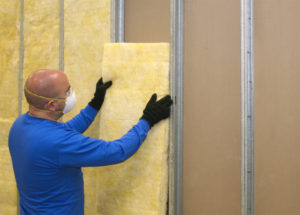09 Aug DOES THE LAW PROTECT ME FROM ANNOYING NOISES OF NEIGHBOURS IN SPAIN?
 DOES THE LAW PROTECT ME FROM ANNOYING NOISES OF NEIGHBOURS IN SPAIN?
DOES THE LAW PROTECT ME FROM ANNOYING NOISES OF NEIGHBOURS IN SPAIN?
The Supreme Court (judgment dated 5 March 2012 among others) openly states that you are entitled to protection and not to bear the noise, when it is annoying, and places this right between the person’s fundamental rights. Therefore the protection is constitutional in relation to the repeated violations that exist in the society of the right to the tranquillity of the citizens as if it were an illegitimate intrusion in the right to the intimacy caused by the noise that these situations of insolidarity provoke. In the same vein, the European Court of Human Rights has been setting the doctrine to include the right to peace and tranquillity demanded by citizens and not to be violated in their daily coexistence within the protection of fundamental rights.
How to react to excessive noise situations?
By the civil law way: according to the law of Horizontal property, the community of owners can go to the judge of first instance, with a previous request to the neighbour that causes the noises.
On the other hand, the neighbour who suffers excessive and annoying noise, regardless of the community, or if it does not act, can go directly to the courts, for being the direct harmed.
By the penal law route: in serious cases, in which a risk of serious damage to the health of the people had been created, the community of owners or the offended person itself are also legitimated to go to the police station or to the criminal Court on duty and to file a Criminal complaint of Article 325 of the Spanish Penal code. In any case it is advisable first to use the way of the requirement of the article 7.2 LPH giving time to stop the inconvenience and is in the case of not accepting it when you can convene the board to agree to the exercise of judicial actions or opt to go to the criminal procedure, for which no board agreement is required, but the president may go directly to the police station, court or prosecution.
How do you test the excess noise?
While the annoying, excessive, constant and unbearable noise must be proved, there is no concrete test by a concrete medium but we have to provide the objective demonstration of the situation and the effect provoked. Expert reports of noise measurement, neighbours ‘ witnesses, notarial noise records in two or three different days may be brought to the trial (only one record is invalid).
In this line the community or the offended neighbour must certify that there is a noise that exceeds the tolerable according to the administrative measurements. So the option to measure or calibrate the noise intensity is the best test medium to determine if the noise is, or not, within the maximum limits allowed by municipal and regional legislation. Only if it exceeds these limits, it may be considered in general as an illicit intrusion causing an intolerable annoyance.

When is a house or premises noise considered illegal for legal purposes?
The emission of any noise is not prohibited, but only those that suppose an intrusion in the private sphere of the people to be produced in a continuous and persistent way and to exceed the normal. Normality is referred to both in the exercise of the right to develop his life by the one who causes the noise, as in the tolerance limit of the affected neighbour.
The Constitutional Court, incorporating the doctrine of the European Court of Human Rights in this matter, declares that “prolonged exposure to certain noise levels, which can be objectively described as avoidable and unbearable, must deserve the protection of the fundamental right to personal and family intimacy, at home, to the extent that they prevent or seriously hinder the free development of personality “.
This will require a reasonable test of the existence of excessive noise levels that place it in the “unbearable” scope, which requires a canon of normalcy about what is bearable and what is not. The truth is that the levels of test requirements can be achieved with the expert tests that objectively determine an “excessive noise” and, in addition, if there is a health impact it will enter the scope of compensation for damages, and if there is a serious health concern, let us remember that this may even constitute a crime.
Thus, in cases where excessive noises occur, it is necessary that those who cause them accept the claims or requirements they receive and that in these cases they adopt and adapt the corrective measures necessary, in order to avoid the inconvenience and this before dealing with the Civil or penal route that we have indicated above.
Example of legally permitted sound limits
Let’s give an example of the infringements and their corresponding fines for breaking the noise regulations in the municipality of MARBELLA. These are as follows:
- Minor offences, corresponding to cases where the permitted limits are exceeded by less than 3Db, with a fine of up to Euros 150.
- Serious offences, in cases where the limit is exceeded by 3 or more dB, with a fine of Euros 151 to Euros 450.
- Very serious offences, in cases where the limit is exceeded by 6 or more dB, or also in cases of recidivism in serious offences within 12 months with a fine of Euros 451 to Euros 1,500 , temporary or definitive closure of disruptive activity.
According to the applicable regulations, with regard to the noise or basic sound pressure received, these are the maximum limits allowed in general terms, i.e. without having other aspects such as tone, persistence, duration, structural vibration etc., measured in Decibels (dB) in the municipality of Marbella for Residential areas:
* Bedrooms, Living Rooms: Day 30 Night 28
* Corridors, Toilets & Kitchens: Day 35 Night 30
* Common access areas: Portals, Stairs,
Hall, entrance to homes, etc. : Day 40 Night 35 .
* Outdoor areas in residential areas: Day 55 Night 45



Sorry, the comment form is closed at this time.